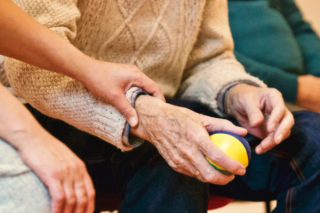question
are complementary therapies safe to use alongside my rheumatoid arthritis treatment?
When considering complementary therapies alongside your rheumatoid arthritis (RA) treatment, it's essential to approach them with caution and informed awareness. Here’s a breakdown of the key points regarding the safety and effectiveness of these therapies based on the information in my sources.
Understanding Complementary Therapies
Complementary therapies encompass a range of treatments that are not part of conventional medical practices. These can include:
- Acupuncture
- Massage
- Aromatherapy
- Vitamin and mineral supplements
- Herbal medicines
While these therapies may offer additional support, it’s crucial to remember that they can also have side effects and may interact with your existing medications.
Safety Considerations
-
Lack of Thorough Testing: Many complementary therapies have not been rigorously tested for safety or effectiveness. This means that their safety profile is often unclear.
-
Potential Interactions: Some complementary medicines can interact with prescription medications, potentially leading to serious health issues or reducing the effectiveness of your current treatments.
-
Consultation is Key: Always discuss any complementary therapies you are considering with your healthcare team, including your doctor and pharmacist. They can provide guidance on whether these therapies are appropriate for your specific situation.
Steps to Take Before Trying Complementary Therapies
To protect yourself when considering complementary therapies, follow these steps:
-
Get an Accurate Diagnosis: Ensure you have a clear understanding of your condition from your healthcare provider.
-
Research the Treatment: Gather information about the therapy you are considering, including any scientific evidence supporting its use.
-
Discuss with Your Doctor: Talk to your healthcare provider about the therapy and any potential interactions with your current treatments.
-
Avoid Stopping Current Treatments: Do not discontinue any prescribed treatments without consulting your doctor first.
-
Evaluate the Source of Information: Be cautious of information from those promoting the therapy, as they may have financial incentives.
-
Consider Affordability: Ensure that the therapy is financially viable for you, especially if it requires ongoing use.
-
Check Practitioner Qualifications: If you are seeking a practitioner for complementary therapies, verify their qualifications and experience.
Warning Signs to Watch For
When exploring complementary therapies, be vigilant for the following warning signs:
-
Cure Claims: Be wary of any treatment that promises a cure for RA, as there is currently no cure for most forms of arthritis.
-
Reliance on Testimonials: If the evidence for a treatment is based solely on personal testimonials, it may not have undergone scientific testing.
-
Discouragement from Conventional Treatments: If you are advised to stop effective treatments or are discouraged from consulting your doctor, this is a red flag.
-
High Costs: Be cautious of therapies that are expensive and not covered by health insurance.
Working with Your Healthcare Team
It’s understandable to feel apprehensive about discussing complementary therapies with your healthcare team. However, it is vital to keep them informed about all treatments you are using. This transparency allows them to provide the best possible care and advice tailored to your needs.
Conclusion
In summary, while complementary therapies may offer some benefits, their safety and effectiveness can vary widely. Always consult with your healthcare team before starting any new treatment to ensure it aligns with your overall management plan for rheumatoid arthritis. Your health and safety should always come first, and your healthcare providers are there to support you in making informed decisions. If you have further questions or need clarification, please consider rephrasing your query or consulting a healthcare professional.
This information is not a substitute for professional medical advice, diagnosis or treatment. Always consult a registered healthcare professional about matters that affect your health. Clara uses artificial intelligence to generate general information for personal educational purposes only, not intended to be a management plan and it may contain errors, inaccuracies or may oversimplify concepts.
Sources














